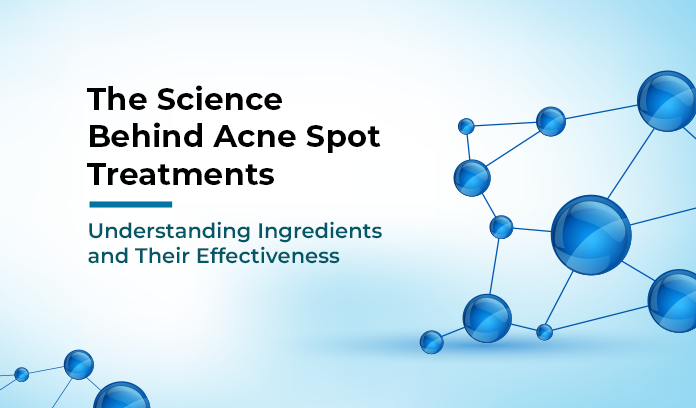To deal with the distressing range of symptoms left behind by acne, the skincare industry has developed a plethora of ingredients that help combat the underlying causes of acne.
Acne spot treatments primarily work to fight off those pesky blemishes effectively. But do these products work on our skin?
Let’s delve into the actual science behind acne spot treatments to gain insight into the key ingredients that help fade these stubborn scars.
Benzoyl Peroxide
As one of the most widely used and effective anti-acne ingredients, benzoyl peroxide helps combat acne-causing bacteria.
It penetrates the pores to release oxygen, effectively destroying Propionibacterium acnes. This helps reduce inflammation and prevent future acne breakouts.
While this ingredient can be extremely effective, it is possible for sensitive skin types to witness irritation or dryness. It helps to start with a lower concentration to avoid adverse reactions.
Salicylic Acid
As a beta-hydroxy acid (BHA), salicylic acid is another widely used ingredient for acne spot treatments.
It is oil-soluble enough to penetrate deep inside the skin and unclog pores, helping dissolve excess sebum, impurities, blackheads, and whiteheads.
Additionally, it helps reduce redness and soothe swollen scars/blemishes with its anti-inflammatory properties. A sit is well tolerated, salicylic acid is known to be a suitable treatment option for most skin types.
Tea Tree Oil
Derived from the leaves of the Melaleuca alternifolia tree, Tea tree oil possesses excellent antibacterial properties to soothe acne-prone skin.
When applied to affected areas or acne spots, it reduces inflammation by targeting acne-causing bacteria, promoting skin’s healing.
Pure Tea tree oil can be too strong for sensitive skin and cause further irritation. Therefore, it’s best to mix it with another carrier oil that prevents skin irritation.
Retinoids
Derived from vitamin A, retinoids work to promote skin cell turnover by unclogging pores and preventing future acne breakouts.
They are commonly used in anti-acne skincare due to skin-renewing benefits to make way for smoother skin texture.
Remember that retinoids can cause sun sensitivity and skin sensitivity, so applying them in moderation or with thorough sun protection is helpful.
Sulfur
For centuries, Sulfur is being used in acne spot treatments due to being able to reduce excess sebum and oil.
It works by breaking down keratin, a protein present in the skin that can lead to pore blockage. For effective treatment, Sulfur is used in combination with other ingredients.
In conclusion, knowing the science behind each ingredient’s use and acne-fighting properties empowers us to make informed choices about our acne problems.
Depending on your skin type and acne severity, different ingredients may be more effective than others. Always better to perform a patch test or consult a dermatologist before adding any new product to your skincare regimen.











